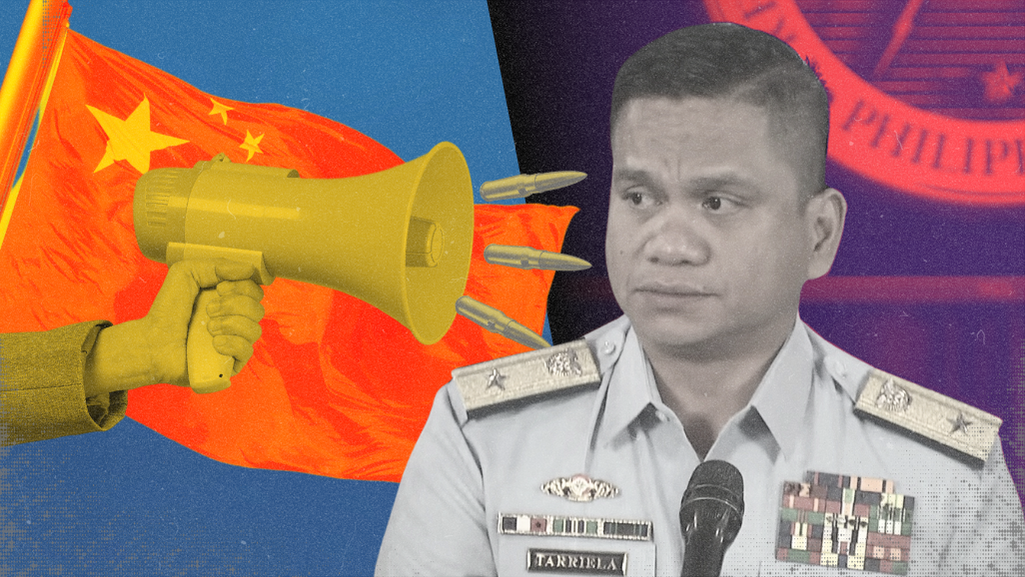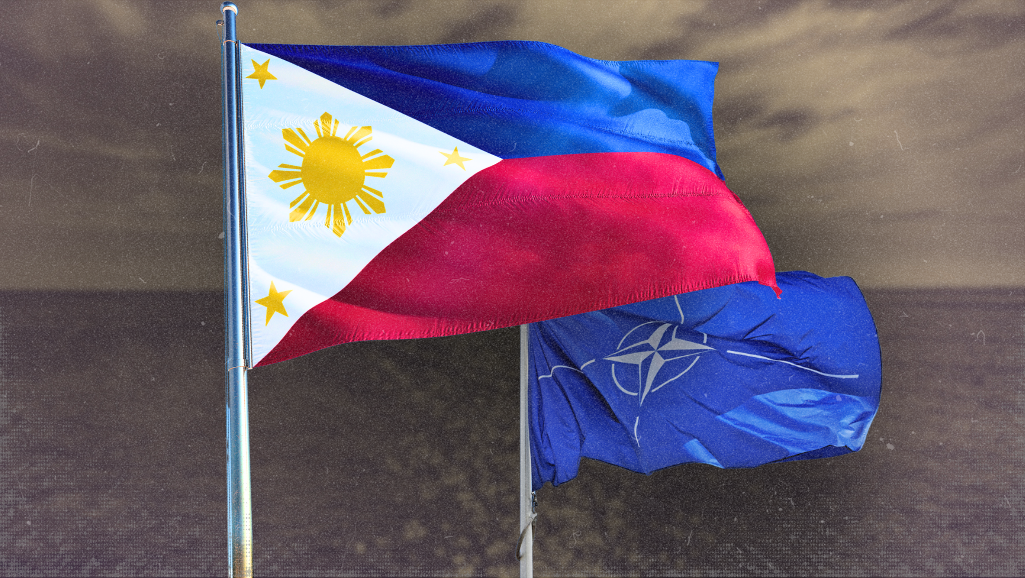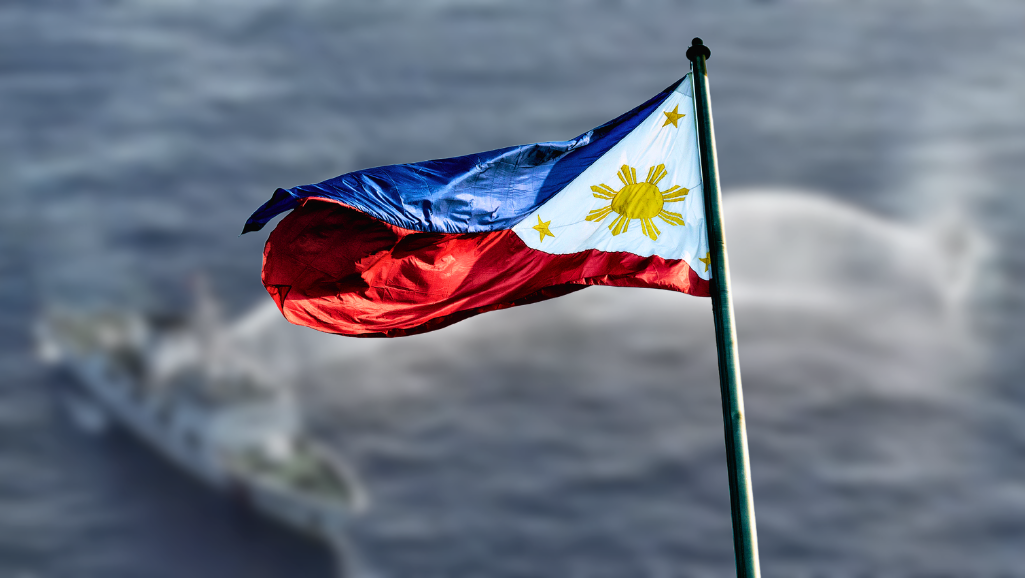PressOnePH
PH Protect Project

“Tainted source, PMA reject, CIA operative, US dog.”
These are some of the ad hominem attacks lobbed against Commodore Jay Tarriela by pro-China propagandists and trolls.
Tarriela’s past in the Philippine Military Academy, even if it has nothing to do with his work as an officer and spokesman of the Philippine Coast Guard, is often mentioned as well.
But apart from the nameless, faceless trolls on social media that Philstar.com wrote about in December 2023, one website is dedicated to launching personal attacks against the Coast Guard official.
A search of the Asian Century Journal, a website that features pro-China opinion pieces, yielded 40 articles where Tarriela is mentioned or is the subject of the entire article. The website does not mention its editorial board or the location of its office. Its contact information features a GMail email address.
Since the start of the year, Asian Century Journal has published 12 articles containing statements attacking Tarriela.
Columnist Ado Paglinawan first called Tarriela “Tonto,” the fictional Native American sidekick of the “Lone Ranger,” the fictional masked former Texas Ranger who fought outlaws in the American Old West, in a Dec. 29, 2023 article.
Tarriela’s Lone Ranger, according to Paglinawan, is retired US colonel Raymond Powell, founder and director of SeaLight, a maritime transparency project of the Gordian Knot Center for National Security Innovation at Stanford University, California.
In articles published on Jan. 3, 6, 12, and 23, Paglinawan used the term to describe the alleged partnership between Powell and Tarriela.
“It has become clearer and clearer that Tarriela does not defer to his higher-ups but to a foreign voice coming from the US Naval Institute. Raymond Powell is the lone ranger and Tarriela is his tonto,” Paglinawan wrote in his Jan. 23 piece.
On Jan. 27, 2024, Paglinawan doubled down and accused Tarriela of being a “deep penetration agent” in an article titled “America’s Japan-bred Saboteur Inserted in PH Coast Guard?”
The article was laden with more defamatory statements against Tarriela, like his dispute with the Philippine Military Academy, a topic that Philstar.com had written about the previous month.
Columnist Rigoberto Tiglao accused Tarriela of being kicked out of the country’s premiere military academy.
Tarriela answered this post on the same day, saying that he left the PMA to “uphold my honor and maintain my integrity intact.”
Thank you for asking. I want to finally address the ad hominem attacks that you and other trolls have thrown at me. I left the academy a few weeks before our graduation at PMA in 2004. I was reported that I cheated in a quiz, and in order to uphold my honor and maintain my… https://t.co/DIwTtrZRdX
— Jay Tarriela (@jaytaryela) March 30, 2024
On the same day, Tarriela posted a tweet with an image showing part of a piece by Ado Paglinawan.
He said he had reached his “limit” with Paglinawan’s statements and vowed to hold “disinformation operators, especially those undermining the government’s transparency initiative in ways that violate our laws,” to account.
However, this did not deter the Asian Century Journal from further attacking Tarriela. Soon, other columnists on the site joined in.
On Feb. 19, Herman Tiu Laurel accused Tarriela of “robotically repeating narratives from USA”.
The following day, Rod Kapunan said Tarriela was “already guilty of insubordination by his words, and imperils whatever diplomatic strategy the Philippines has now decided upon in its ‘de-escalation’ with China.”
On the first day of March, Paglinawan resumed his attacks on Tarriela, accusing the Coast Guard official as “an interloper in the Philippine Coast Guard who often issues pontifications about international law that is way beyond his league.”
On March 4, Paglinawan repeated the “PMA dropout” narrative against Tarriela. Two days later, Paglinawan insinuated that Powell and Tarriela were in partnership regarding the “transparency initiative” of the Philippines in the West Philippine Sea.
The latest Asian Century Journal article to attack Tarriela came from a certain Daniel Long who said Tarriela “antagonizes Russia for American military interests at the expense of Filipino[s].” He did not cite proof of Tarriela “antagonizing” Russia.
Of the 12 articles published, nine were from Paglinawan, while there was one each from Tiu Laurel, Kapunan, and Long.
Most of the articles seemed to degrade Tarriela and discredit him as a credible source. Other narratives pushed conspiracy theories and pro-China positions.
Paglinawan’s tirades against Tarriela framed the Coast Guard spokesman as a loose cannon and an agent of the United States, messages that were mostly in line with what pro-China propagandists and troll accounts have been spreading online.
The apparent objective is to strengthen the narrative of US influence and a US-led “proxy war” in the West Philippine Sea dispute to increase pressure on the Marcos administration to reconsider its stand on the issue.
Tarriela laughed off the relentless attacks against his credibility.
“Ang mga comments niya lagi maka-Amerikano daw ang mga ginagawa natin,” Tarriela said during an episode of PressOnePH’s podcast “The Press Room.”
“There came a point na nagsawa na ako. Why would I even justify … ‘yung mga conspiracy theories na yan between the Philippines, China, and the United States? So ang sabi ko na lang sa kanya if you really think you are preaching the gospel truth pagdating sa usaping West Philippine Sea, why don’t you do that sa Senado under oath,” he said.
Columnists and vloggers who undermine the government’s efforts to assert the Philippines’s rights in the West Philippine Sea “mislead” the Filipino people, Tarriela said.
“Ang pagtaas ng number ng trolls na ineemploy ng China is already an enough measuring stick for us to say that we are really doing good,” he said.
He added that instead of getting annoyed by the online attacks he has been receiving, he now finds them amusing.
“Kaya nga baligtad na ngayon e. Imbes na naiinis ako or na-ha-highblood ako sa trolls, na nagto-troll sa akin, sa Twitter, natutuwa ako. Ibig sabihin kailangan nilang mag-double time,” he said.
The first-quarter 2024 Oculum Research and Analytics survey of 3,000 respondents found 43% in favor of aligning with the US and only 3% with China in the sea dispute. Forty percent did not want to align with either the US or China, while 15% were unsure of what to answer.
Moreover, only 17% of respondents trusted China, the lowest among the 16 countries mentioned in the survey. China garnered the highest level of distrust among respondents at 38%. Following China was Russia, with 26% trust and 19% distrust.
A recent survey by Pulse Asia showed similar results.
Asked about the government’s response to China’s growing online influence operations through trolls and pseudo-experts, Tarriela recalled that the same question had been asked of National Security Adviser Eduardo Año.
He said he had since learned from Año’s response. Año’s position, he said, reflected the Philippine government’s consistent policy.
“Alam mo, every time na itinatanong din sa akin to, I learn from him [Año]. Napaka-simple. Alam mo how he puts it? It’s just one sentence. ‘We’re just going to tell the truth,’” he said. Rommel F. Lopez

This report was made possible by an Internews project to build the capacity of news organizations in understanding disinformation and influence operations in the Philippines.
Thank you for asking. I want to finally address the ad hominem attacks that you and other trolls have thrown at me. I left the academy a few weeks before our graduation at PMA in 2004. I was reported that I cheated in a quiz, and in order to uphold my honor and maintain my… https://t.co/DIwTtrZRdX
— Jay Tarriela (@jaytaryela) March 30, 2024

Why the Philippines should be wary of NATO’s expansion into the Indo-Pacific region
The Philippines should learn its lessons from other ASEAN states. It should have a more independent foreign policy and be less dependent on the West. It is unclear if the US and NATO would be there if conflict erupts.

ALERT: China Daily’s new Tiktok account amasses millions in engagement despite having no content
After TikTok banned the state-run China Daily’s account from its platform, a new account with a similar name and logo has surfaced, already amassing hundreds of thousands of followers and millions of likes despite having no content posted.

A real, non-aligned foreign policy
Manila should grab the chance to become a dialogue partner or even become a member like India, Pakistan, and Mongolia which also have vibrant relations with the US and the West.
